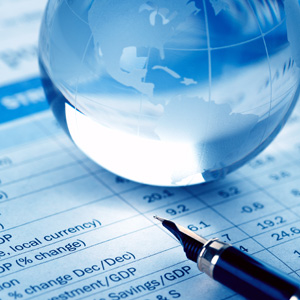According to an analysis by Singapore company formation specialist Rikvin, sole breadwinners under the age of 55 with at least two dependent children and spouse stand to enjoy effective personal tax rates ranging from approximately 2.72% to 10.48% if they earn between US$75,000 and US$200,000.
The lower effective tax rate is in part due to the introduction of a personal income tax rebate that comes into effect for YA 2013. During the 2013 Budget announcement, it was revealed that all tax residents will receive a Singapore personal tax rebate for this year of assessment.
Resident individuals under the age of 60 will qualify for a 30% rebate while those aged 60 and above will be entitled to a 50% rebate. The rebate is capped at S$1,500 for all residents and will automatically be computed by Inland Revenue Authority of Singapore (IRAS). Hence, no application will be required on the part of residents.
Apart from the tax rebate, the resident individual taxpayers are also entitled to a personal tax reliefs such as spouse relief (worth S$2,000) and child relief (worth S$4,000 per child). He will also be eligible to an earned income relief worth S$1,000, that is made available to all taxpayers with employment income and are under the age of 55. Altogether, his total reliefs amounts to S$11,000.
Hence, for YA 2013, Singapore sole breadwinners who earn a total income of US$75,000 (S$93,405) only face an effective personal income tax rate of only 2.72%. This translates to approximately S$2,538.
The table clearly shows that individuals who have dependants are in better stead than their childless counterparts to tap more reliefs and pay lower personal taxes in Singapore. This personal tax structure reiterates Singapore’s pro-family vision and agenda to promote parenthood as well as marriage.
The effective tax rates rise correspondingly with the income earned, but do not cross the 11% mark. Those whose total income registers US$100,000 (S$124,540) face a 4.58% effective personal tax rate or approximately S$5,707 in net payable taxes. The effective tax rate for those who earn US$200,000 (S$249,080) rises to 10.48%. In turn, said individuals stand to pay approximately S$26,104 in personal taxes in Singapore.
Commenting further, Ms. Christine Lim, General Manager of Rikvin said, “As illustrated in Annex A, our taxation unit has demonstrated that Singapore’s effective personal tax rates are in fact much lower than the marginal rates, which span from 0 – 20%. The table clearly shows that individuals who have dependants are in better stead than their childless counterparts to tap more reliefs and pay lower personal taxes in Singapore. This personal tax structure reiterates Singapore’s pro-family vision and agenda to promote parenthood as well as marriage.”
“The diagram also illustrates Singapore’s progressive personal tax system very clearly. The effective personal tax rate increases correspondingly with income. Though not illustrated in the table, this applies to lower and middle income earners as well. As communicated during Finance Minister Tharman Shanmugaratnam’s Budget Statement this year, over 55% of employed Singaporeans or lower and middle income residents do not pay income tax,” she added.
“In addition, self-employed consultants, who are earning high salaries, are in good stead to tap multiple benefits if they corporatize their business. By doing so, they may tap Singapore’s attractive effective corporate tax rates, corporate tax rebate as well as common tax reliefs for newly formed Singapore companies. The savings are substantial, even if the costs of doing business are taken into account,” affirmed Ms. Lim.
To learn more please use our Singapore Personal Income Tax Calculator and Corporate Tax Calculator.

Rikvin’s content team includes in-house and freelance writers across the globe who contribute informative and trending articles to guide aspiring entrepreneurs in taking their business to the next level in Asia.


